🌍 Frontier Markets News, November 7th 2025
A weekly review of key news from global growth markets

Africa
Egypt snags near-$30bn tourism investment
On Thursday, from the halls of the newly opened Grand Egyptian Museum in Giza, flanked by an 11-meter-tall statue of King Rameses II, Egyptian Prime Minister Mostafa Madbouly announced the signing of a seven-year, $29.7 billion deal with Qatari Diar to develop a 4,900 acre mega-tourist destination on Egypt’s north coast in Alam Al-Roum, ArabianBusiness reports.
- Egypt’s Banque Misr expands into East Africa with new Djibouti subsidiary (Daily News Egypt)
The deal will deliver $3.5 billion to Egypt by the end of the year for the land, with the remaining $26.2 billion as an in-kind investment coming later, Reuters reports. The injection of cash could help Egypt unlock an additional $2.5 billion in disbursements from an ongoing $8 billion IMF program, which have been delayed over concerns about Egypt’s reserves.
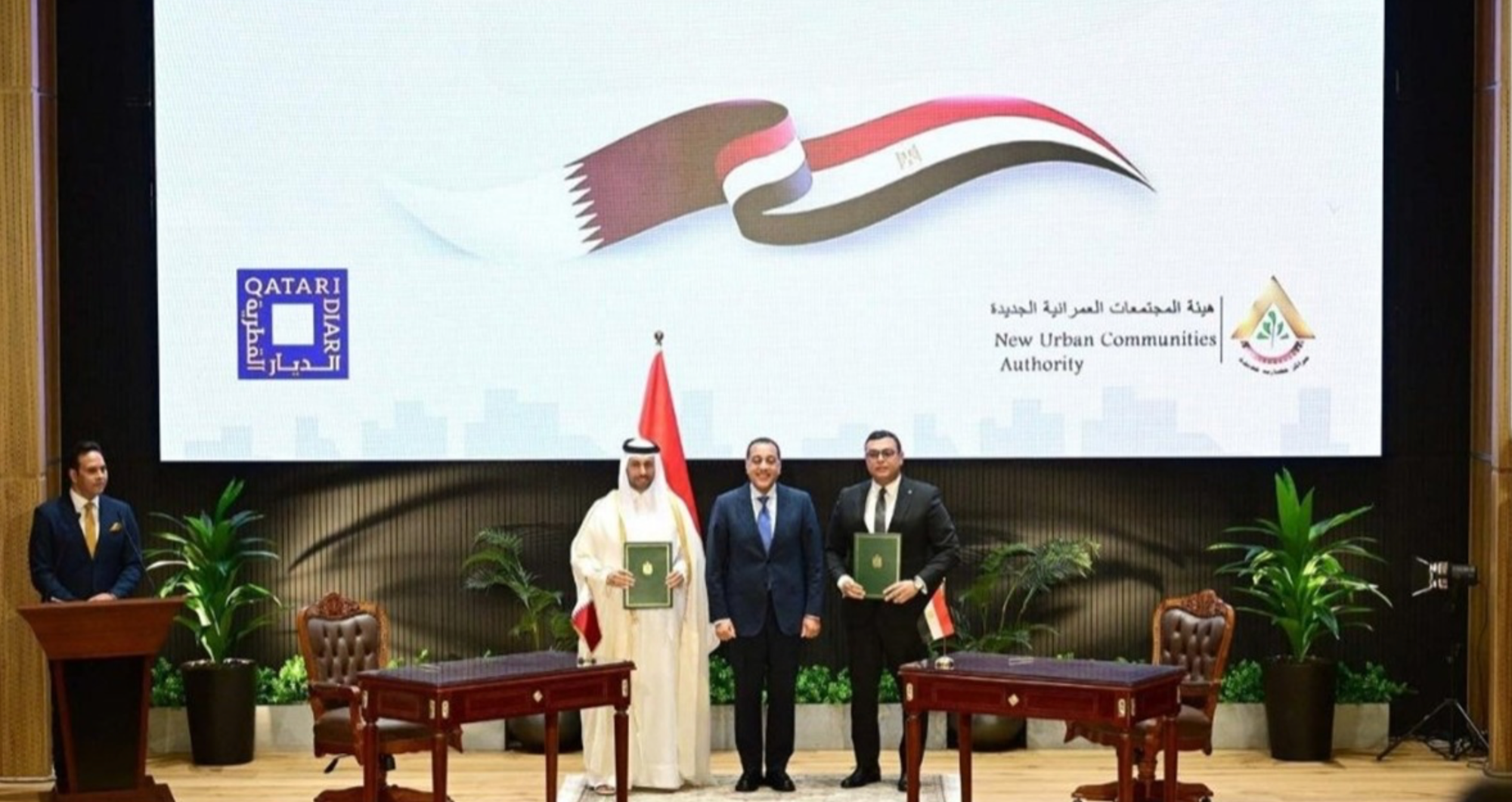
The announcement comes on the heels of a flurry of mega-investments from the Gulf into Egypt and other African states. In 2024, the UAE signed a $35 billion deal to develop real estate and infrastructure in the nearby coastal region of Ras El-Hekma. In September, Doha-backed Al Mansour Holdings pledged $103 billion of multi-sector investment in the Democratic Republic of Congo, Mozambique, Zambia, Zimbabwe, Botswana and Burundi, while Saudi Arabia’s Midad Energy Midad penned a $5.4 billion oil and gas deal with Algeria.
Kenya is looking to join the party, with the country’s President William Ruto in talks this week with the Emir of Qatar over potential investment into sectors including agriculture, infrastructure, aviation, and financial services.
Death toll rises as Tanzania cracks down on demonstrators
Tanzania’s government this week continued a brutal crackdown on demonstrators protesting against the result of last week’s presidential election, NPR reports. According to unverified opposition statements, more than 1,000 people have been killed and many more injured or arrested. At least 145 people were charged with treason over the protests, Reuters reports.
- Cameroon security forces killed dozens in post-election crackdown (AfricaNews)
After an election that was widely considered neither free nor fair, incumbent president Samia Suluhu Hassan was declared the winner with a reported 98% of the vote. Prior to the polls, major opposition parties were barred, with key opposition leaders arrested or attacked, leading to declarations of illegitimacy from international groups.
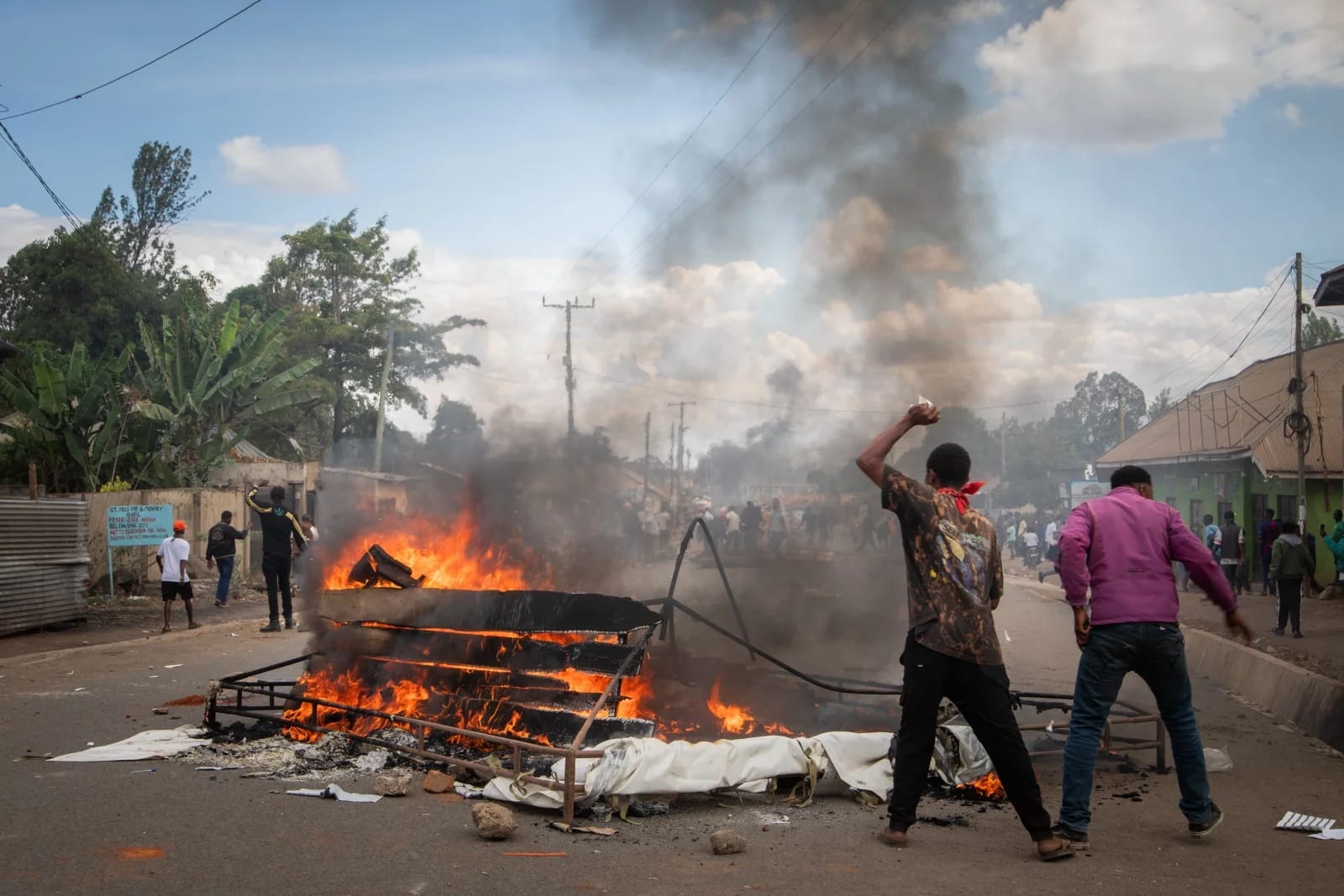
The protests and the government’s response triggered fuel and food shortages in large cities including Dar el Salaam, Lilongwe and Salima as closure of fuel stations ports, borders and other public services ground transportation to a halt. The disruptions spilled into neighboring countries:120 fuel tankers were blocked from crossing the land border into Malawi, while fuel ships delivering to Malawi were blocked from departure in Tanga. Most borders and ports have since been reopened, but not without disruption to other key supply lines such as the Zambia-Tanzania Copper railway, and the copper and cobalt exports from the Democratic Republic of Congo, which are shipped eastward from Tanzania.
Central African banks face new capital requirements
The Central African Banking Commission (COBAC), the banking regulator for CEMAC countries, announced plans to sharply raise minimum capital requirements for banks and financial institutions in the region. The changes to levels set in 2009 would raise the threshold from 10 billion CFA Francs to around 25 billion ($48mm) for banks and 1 billion CFA francs to 4 billion ($7 million) for non-bank financial institutions.
The increase would follow capitalization reforms implemented across 16 countries in the wake of the Covid pandemic, ratings firm Fitch reports. Most countries have chosen to implement hikes to minimum paid-in capital, instead of risk adjusted capital ratios, forcing banks to raise fresh capital via share issuance. Some countries are allowing institutions to roll in retained earnings or downgrade their licensure to meet new standards.
Asia
Central Asian leaders strike deals with Trump
US President Donald Trump hosted the leaders of five Central Asian countries at the White House on Thursday, sparking a flurry of dealmaking with a mineral-rich group of nations that has increasingly become a prize to be won by great powers, AP reports.
- Kyrgyzstan ups cooperation with Egypt (Trend News)
A big winner was Kazakhstan, the largest economy in Central Asia, which agreed to produce at least 3,000 John Deere tractors. The two countries also pledged to cooperate on critical minerals. Tech giant Nvidia meanwhile agreed to sell Kazakhstan up to $2 billion in AI chips, Seeking Alpha reports.
The Central Asian country, which has had diplomatic relations with Israel for 30 years, also agreed to join the group of Muslim countries that have recognized Israel under the Abraham Accords, Axios reports.
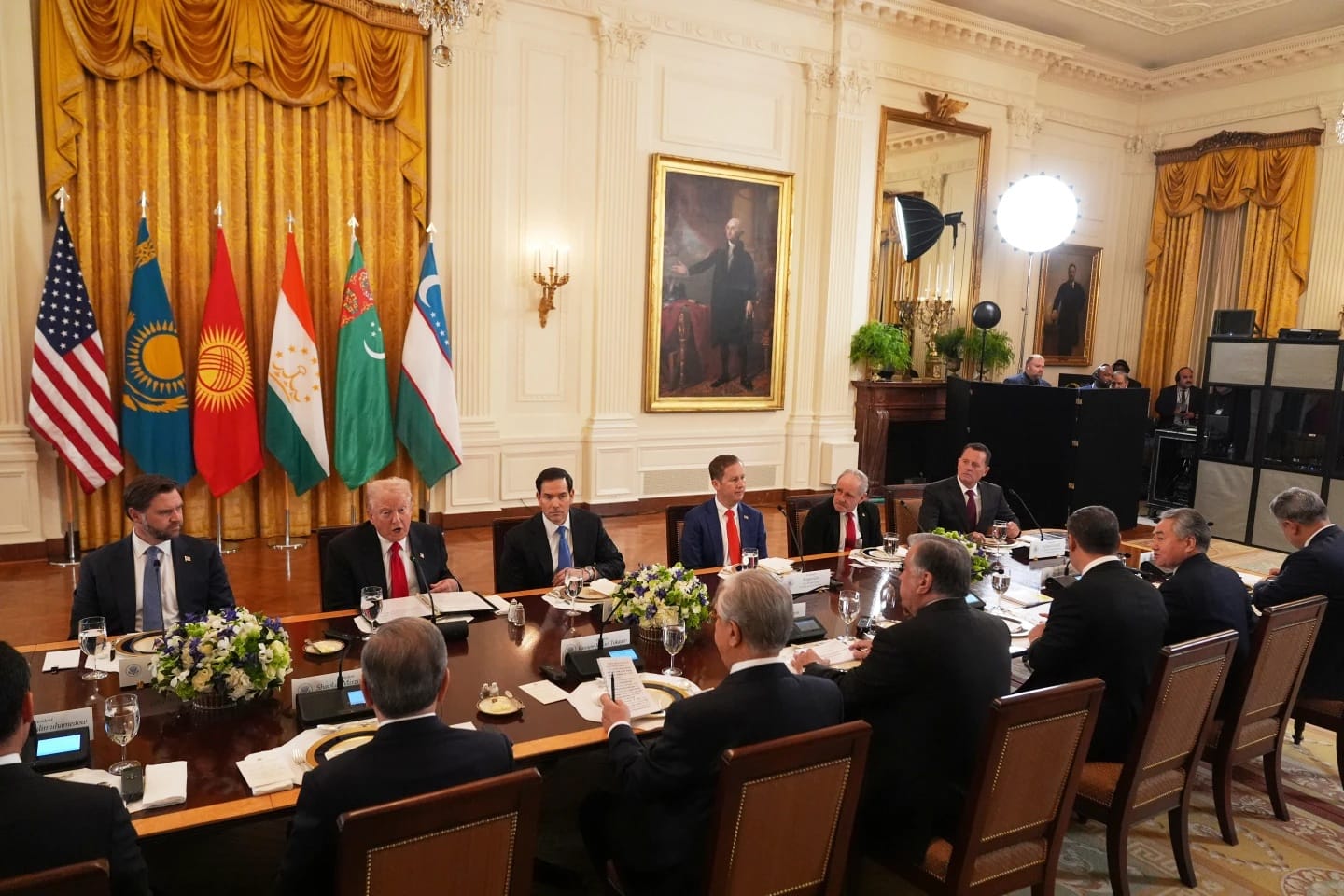
Uzbekistan announced a new visa-free entry policy for US citizens, The Diplomat reports, following on from commitments the country made in September to buy 22 Boeing jets. Trump said the two countries had also agreed a multi-billion-dollar trade deal focused on minerals, aviation, automotive parts, infrastructure, agriculture, energy and IT, The Hill reports.
Philippines and UAE seek entry to transpacific trade agreement
The Philippines and the UAE have applied to join the 12-country CPTPP trade bloc, Nikkei reports.
The Philippines reportedly submitted its application to the Comprehensive and Progressive Agreement for Trans-Pacific Partnership in August. The UAE also applied that month, according to Nikkei, which cited Japanese government sources. All 12 member countries, which include neither the US nor China, must now agree to begin accession talks. China is reportedly keen to join, too.
The CPTPP is the successor agreement to the US-led Trans-Pacific Partnership, which the Obama administration negotiated but never ratified amid intense political opposition. Both Hillary Clinton and Donald Trump opposed the agreement, and Trump withdrew the US from the deal on his third day in office in 2017. The remaining countries renegotiated the deal without Washington.
Cambodia to restart military drills with US
Cambodia has agreed to resume military drills with the US after an eight-year pause, SCMP reports. In return, the US on Thursday lifted an arms embargo on Cambodia that was imposed in 2021 over concerns about Chinese military influence in the Southeast Asian nation, Reuters reports.
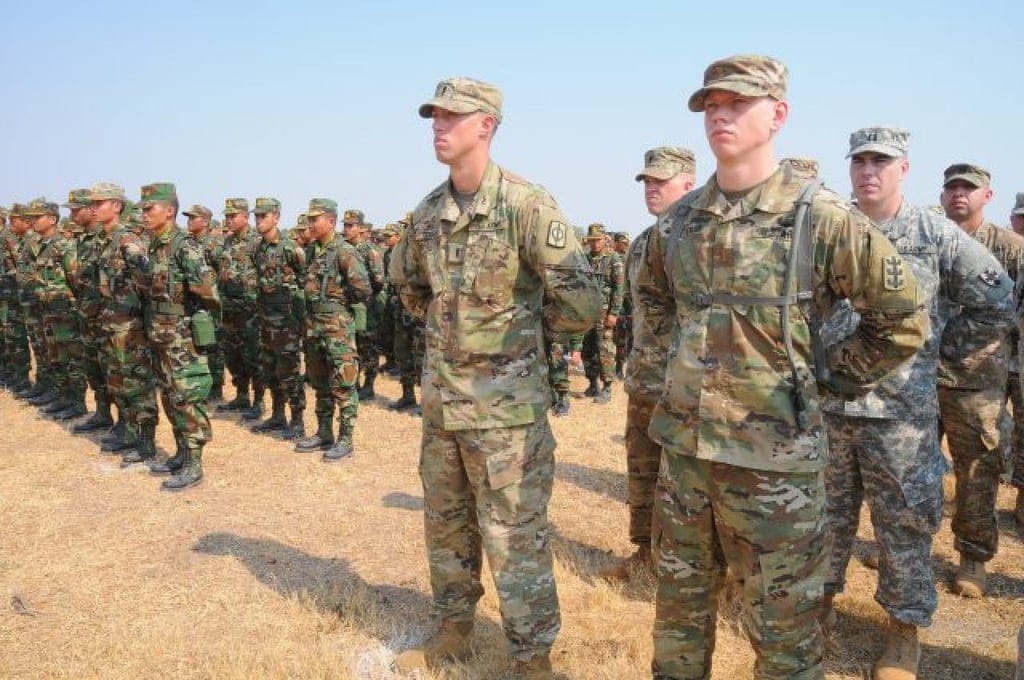
The deal reflects a warming of relations that has been juiced by US President Donald Trump’s personal diplomacy. At a summit in Malaysia last month, Trump oversaw the signing of a peace treaty between Cambodia and Thailand, which had been fighting since July. The US and Cambodia then signed a trade deal, and the two countries agreed to cooperate on transnational organized crime.
- US Defense chief vows closer ties with Vietnam (NYT)
Less than two weeks earlier, the US and UK sanctioned Prince Group, a Cambodian conglomerate, for its involvement in scams. But the sanctions did not target companies tied to Prince Group in both China and the US, FMN’s Noah Berman reports in The Wire China, and its founder is still at large.
Middle East
US tightens ties with Syria
In a first for a Syrian president, Ahmed al-Sharaa is to visit the White House next week for a meeting with US President Donald Trump, with sanctions relief and potential security agreements on the table, Reuters reports. Ahead of the visit, the US has prepared a draft UN Security Council resolution lifting sanctions against al-Sharaa, who was targeted with an arms embargo, asset freeze, and travel ban, due to his leadership of the militant group HTS. The US has already lifted unilateral sanctions on Syria levied against the now-ousted Assad regime.
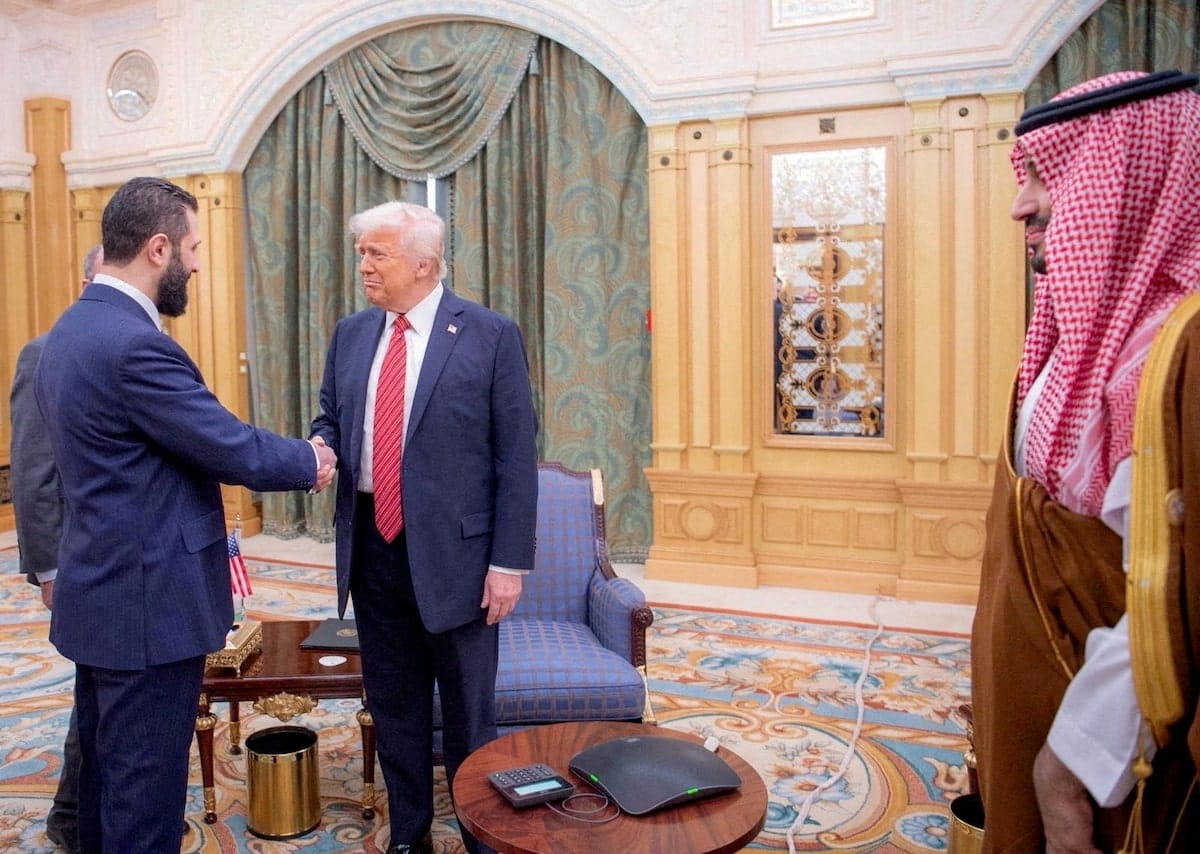
Access to the international financial system—particularly dollars—is crucial for Syria’s economic recovery because of its dependence on essential imports such as food and gas, and the potential foreign-exchange earnings from exporting oil. The draft UN resolution suggests the US is warming to Syria as a potential regional partner—as do reports that it is in talks with the Syrian government to establish a US military presence in Damascus.
Syria is also looking to regional allies including Saudi Arabia for investment to boost its economic recovery. Semafor reports this week that Riyadh and Damascus are in talks to lay data cables connecting the Arabian peninsula to Europe, a move that could help Saudi Arabia further its AI ambitions and give Syria a greater role in the regional economy.
Slow progress disarming Hezbollah undermines Lebanon’s debt restructuring
Lebanon’s government is facing growing pressure from the US to make good on its promise to disarm Hezbollah, Bloomberg reports. US Special Envoy Tom Barrack this week warned Beirut that Washington’s patience is wearing thin, and said Lebanon’s government is “paralyzed” by Hezbollah’s presence.
Israel has since launched new airstrikes against what it says is Hezbollah infrastructure in southern Lebanon, threatening the fragile ceasefire negotiated by the US last year. Lebanon’s government is in the process of negotiating a new loan program with the IMF, but slow progress on disarming Hezbollah and passing key reforms, along with growing uncertainty about global interest rates, puts the success of such negotiations at risk.
Prices on Lebanon’s defaulted bonds have held steady in the low-20-cent range recently on hopes that an IMF program and banking sector reforms will bear fruit, but this week’s developments on the security front may end up denting investors’ optimism.
Europe
Czech billionaire Andrej Babiš forms coalition with far-right parties
Billionaire Andrej Babiš, whose ANO party won the Czech parliamentary election last month without a majority, this week solidified an agreement with two small right-wing Eurosceptic parties to gain a majority and form a government, Politico reports.
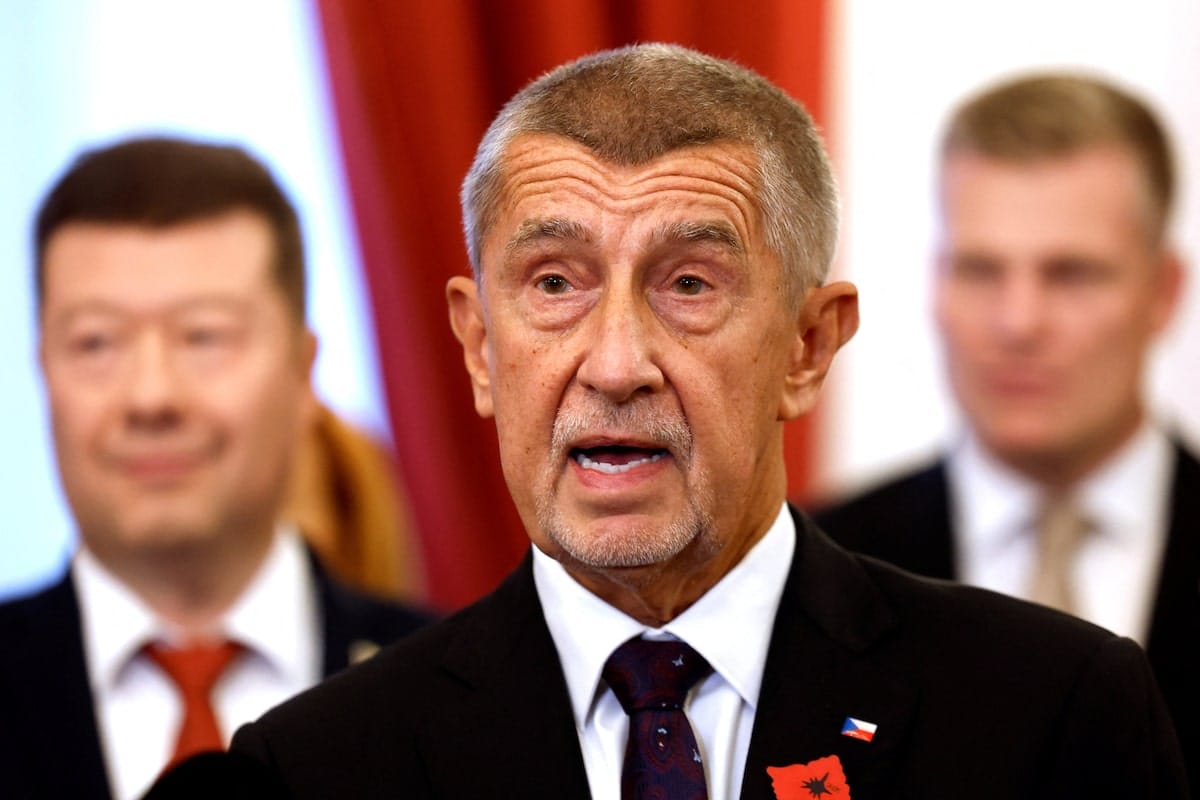
The coalition with Motorists for Themselves, and Freedom and Direct Democracy pushes the Czech government further right, and raises fears that Prague will entertain these two parties’ more extreme positions. Freedom and Direct Democracy, also known as SPD, is a pro-Russia party that has campaigned for the Czech Republic to leave the EU.
- Czech cabinet resigns as election winner Babis closer to new government (Reuters)
Czech support for Ukraine is expected to decline, as Babiš more closely aligns with the nationalist governments of Hungarian Prime Minister Viktor Orbán and Slovak Prime Minister Robert Fico. Prague’s populist shift comes as far-right extremism is on the rise in the Balkans.
EU to raise guardrails for new members
Amid concerns over democratic backsliding, the EU’s Enlargement Commissioner Marta Kos said the bloc would introduce stronger safeguards to ensure countries joining the EU abide by their commitments, the FT reports. New members may be placed in a probationary period to ensure adherence to democratic norms, in an effort to prevent the full accession of more ‘Trojan horses’ similar to Hungary, reports the FT.
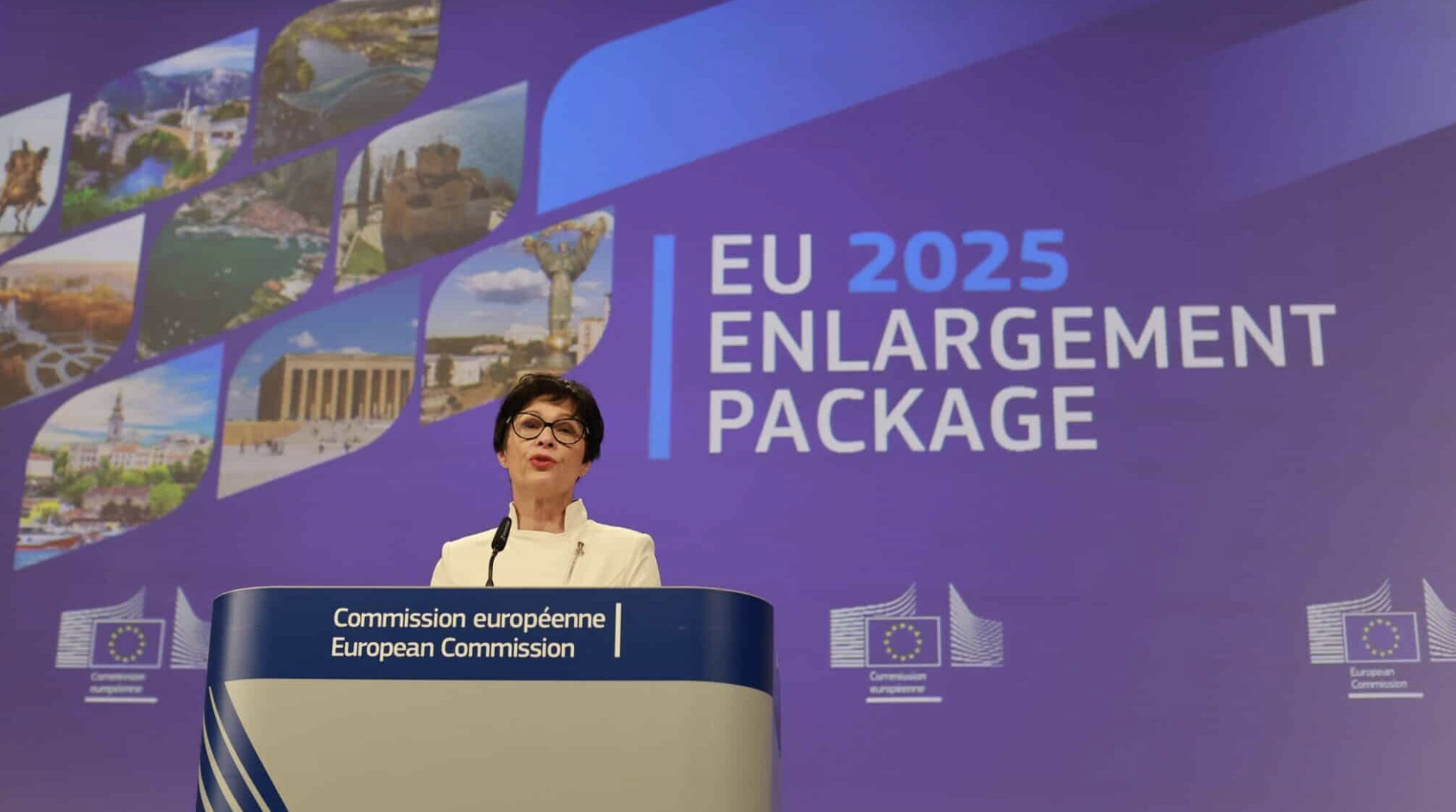
Kos said the EU Commission was working on proposals to guard the values of the union while also emphasizing the importance of enlargement for regional security. The Commission’s annual report published on Tuesday praised progress made by accession candidates Montenegro, Albania, Moldova and Ukraine. She warned Ukraine, however, that it needed to rein in corruption in order to remain in the fast lane for EU membership, and she criticized Serbia for “backsliding on freedom of expression, on freedom of academia.”
Latin America
Jamaica counts cost of hurricane damage
Jamaica was reeling this week after Hurricane Melissa, the strongest storm ever recorded to hit Jamaica, caused estimated losses of up to 32% of GDP, The Guardian reports. The $6–7 billion hit to homes, crops and infrastructure could shave as much as 13% off near-term output, forcing the government to suspend fiscal rules and seek international assistance, Prime Minister Andrew Holness told parliament.
The storm destroyed key bridges and tourism corridors, leaving more than 30 communities cut off and thousands of workers jobless. Holness called the storm “a warning,” pledging to rebuild the power grid and transport systems to withstand stronger weather events.
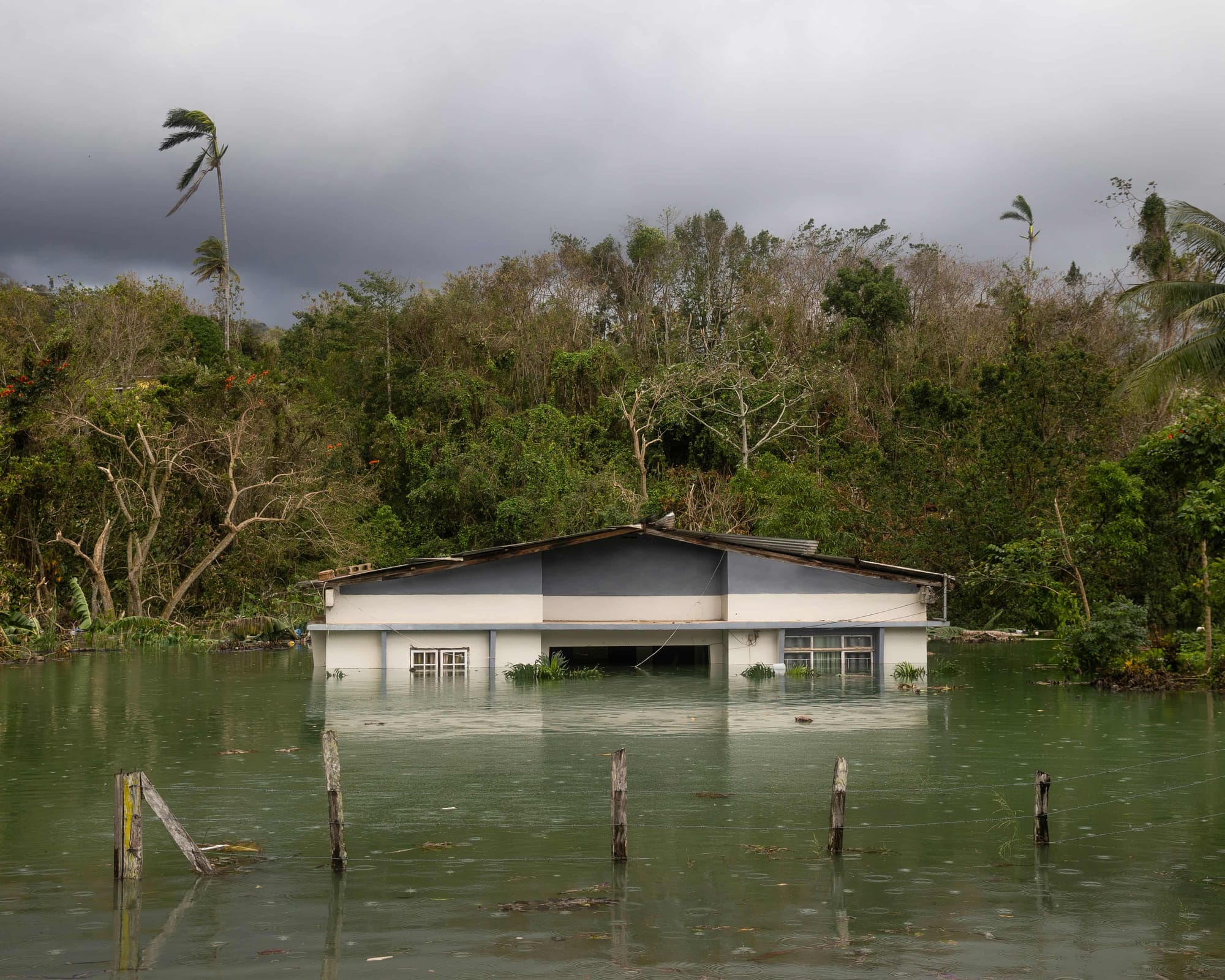
Melissa also battered Haiti and Cuba, killing at least 75 people region-wide and flooding 12,000 homes in Haiti alone. The cost of damage across the Caribbean could reach $50 billion, according to AccuWeather. Holness said his government would waive import taxes on solar and communications equipment to speed recovery and reinforce climate resilience. “Every repaired bridge, re-roofed home and rebuilt road must be designed for the storms of tomorrow,” he told lawmakers.
US moves against Venezuela fuel bond rally
Venezuelan dollar bonds have risen more than 80% this year as investors bet US pressure on the country’s president Nicolás Maduro could revive long-delayed debt talks, Reuters reports. Analysts warn the optimism may be misplaced, however. “Even if regime change were to occur, Venezuela faces one of the most complex sovereign workouts in modern history,” said UBS strategist Alejo Czerwonko.
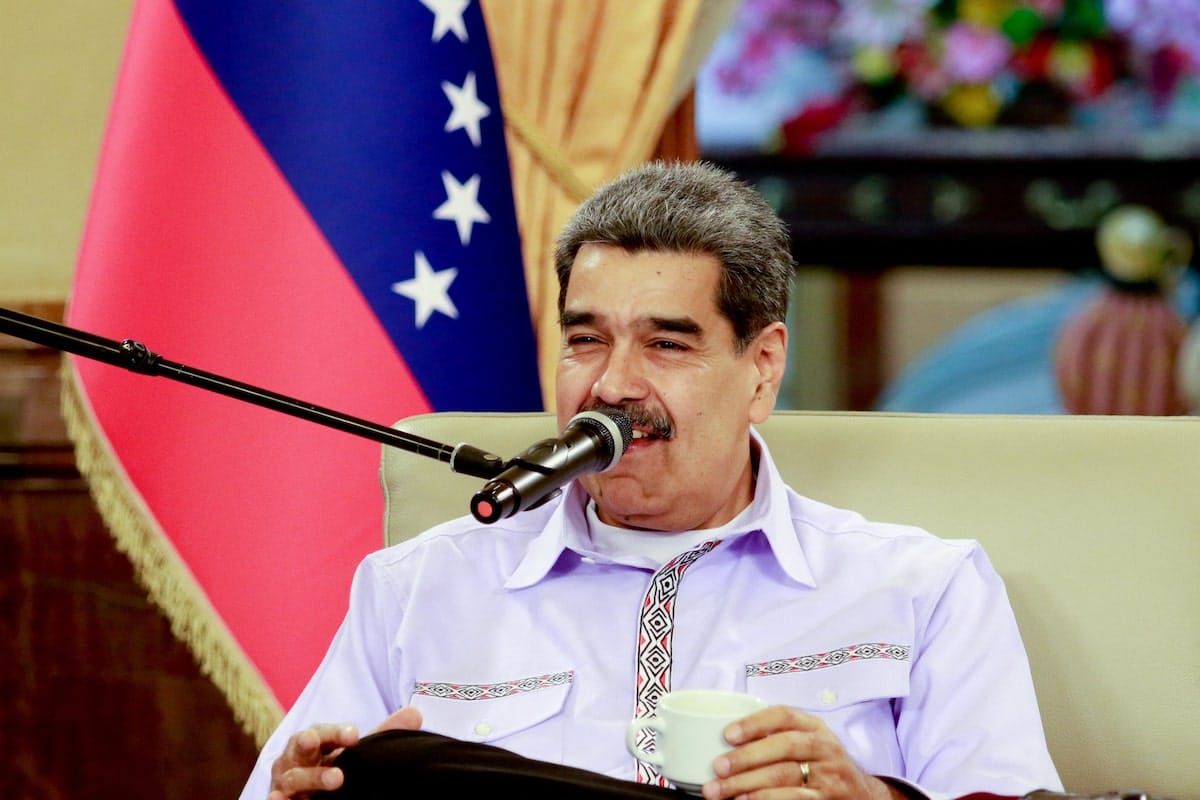
The US has been waging a military campaign against alleged Venezuelan drug traffickers and President Donald trump is reportedly considering plans to oust Maduro. Pressure on Venezuela increased this week after US senators voted against a resolution to block further hostilities.
Trump has confirmed authorizing CIA operations inside Venezuela but said on the TV show 60 Minutes he doubts the US will go to war. The Pentagon has deployed the USS Gerald R. Ford carrier group off Venezuela’s coast in the largest regional buildup since the 1989 invasion of Panama.
Jobless growth and declining security give tailwinds to radical change in Chile and Peru
Disappointment over limited job creation has fueled discontent across Chile and Peru as both countries head toward presidential elections. In Peru, mining gains have generated macroeconomic stability, but failed to generate broad based growth. Meanwhile Microsoft and Google data center projects in Chile, once touted as transformative, will employ only a few hundred permanent workers.
- India advances trade pact talks with Peru and Chile (LiveMint)
The discontent is showing clearly in the polls. Peru’s presidential front-runner Rafael Lopez Aliaga is winning support by promising to revoke idle mining concessions and return them to the state, unnerving major copper producers such as Southern Copper and First Quantum. The proposal appeals to small-scale miners who have gained political influence as metal prices climb.
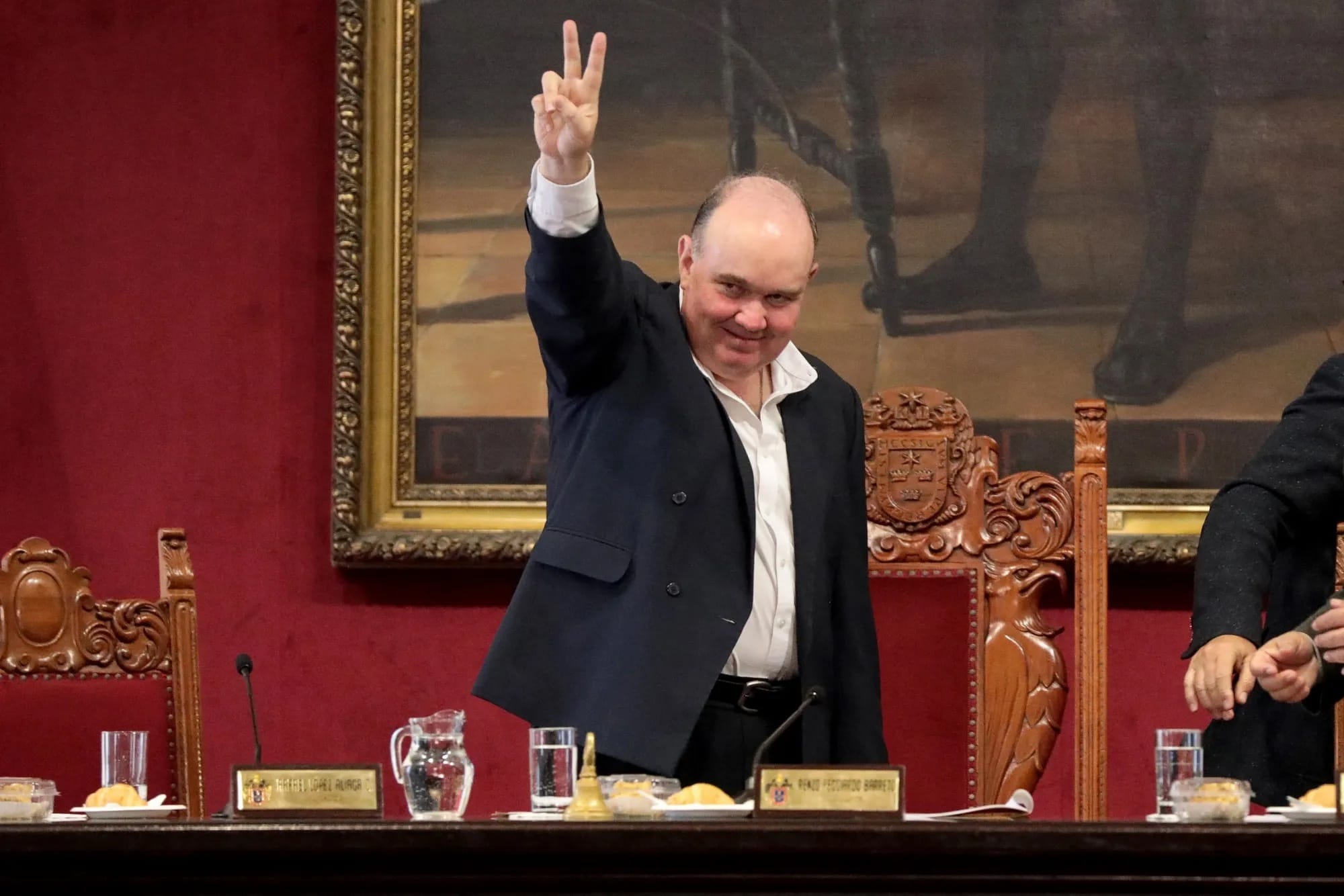
A leading candidate in neighboring Chile’s presidential race is promising to tackle weak growth, crime and inequality. Former labor minister and longtime Communist Party member, Jeannette Jara has also pledged to bring fiscal restraint, technocratic management and targeted welfare spending. She is expected to reach the December runoff but trails conservative rivals.
What We’re Reading
Excavation in Nigeria’s Benin City unearths hidden layers of a kingdom’s past (ArtNet)
Nigeria opens eurobond offer seeking to raise $2.25bn (Bloomberg)
China’s massive Guinean mine threatens to upend iron ore market (Bloomberg)
Leviathan Gold moves forward with Cura Botswana acquisition (Finimize)
Morocco declares public holiday to mark UN approval of its Western Sahara plan (BBC)
Libya moves to bring together the country’s divided security forces (ADF)
North Africa is emerging as a growth engine, led by Egypt and Morocco (Global Finance)
Startup funding in Africa hits three-year high of $2.7bn (FiA)
Surging commodities help Africa take in lead in EM rally (FT)
Indonesia’s China-backed bullet train derailed by mounting debt (FT)
Indonesian banks brace for government policy headwinds after profit slump (Nikkei)
Thailand offers $150mn subsidy to foster talent in bio, robotics (Nikkei)
US adds ‘poison pills’ to Asia trade pacts to counter China (FT)
Saudi economy grows most since early 2023 on oil supply rise (Bloomberg)
Romanian equities reach record asset value (Romania Insider)
Kosovo president proposes new prime minister to try to end impasse (Reuters)
Serbian parliament debates special law to make Jared Kushner development project a “priority” (Balkan Insight)
Russia and Turkey to renew gas deals and keep same annual flows (Bloomberg)
Peru breaks diplomatic relations with Mexico (ABC)
Bolivia to seek IMF deal by march under incoming president Paz (Bloomberg)
Milei defies calls to float Argentine peso freely (FT)
We are committed to providing FMN readers with a free weekly digest of politically unbiased, succinct and clear news and information from frontier and small emerging markets.
Please consider becoming a paid supporter to help cover some of our costs and support our continued development of sharp markets-focused coverage and new informational products. Paid subscribers will also gain exclusive access to our quarterly EM/FM report that aggregates EM insights from 25 major banks, international institutions and consultancies.






